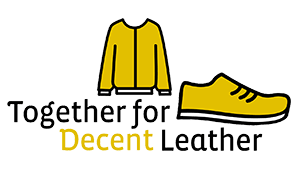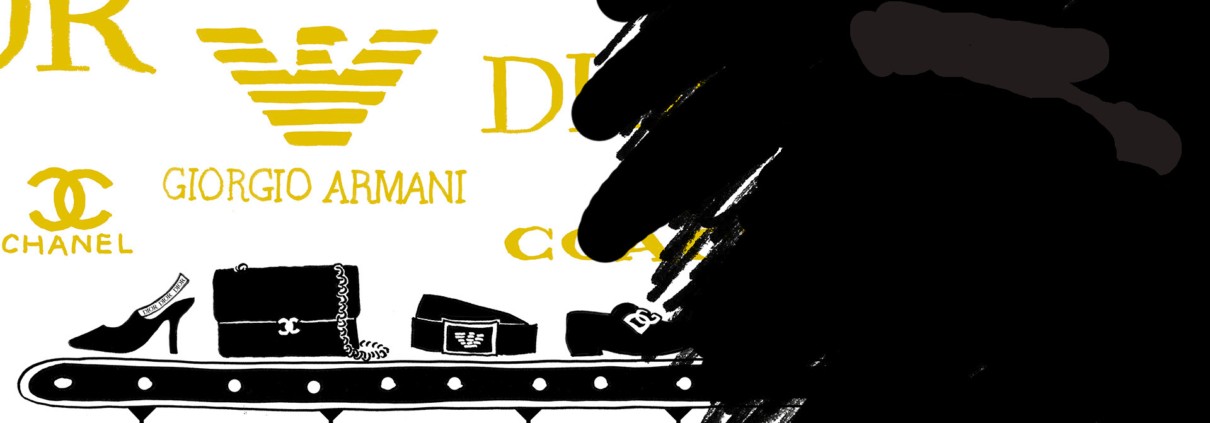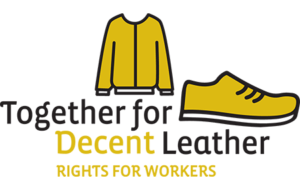Luxury brands must reveal the origin of their leather goods
Luxury brands including Armani, Versace, Michael Kors and Coach don’t provide key information on the origin of their leather products. An analysis carried out by SOMO shows that 35 out of 44 luxury brands examined do not publish supplier lists that show where they source their leather jackets, trousers, shoes, belts, gloves, bags, and other leather goods. This is concerning because the global leather industry is notoriously associated with labour rights abuses and environmental pollution.
Online table with the scores of the companies
Only a handful luxury brands give some information on the origin of their leather products. Among these are Bally, Zegna and Fendi. But there is still a long way to go. The information provided by these companies is far from complete. Meanwhile, most brands do not publish a supplier list at all, failing to meet even the most basic standards.
Martje Theuws of SOMO said: “Our analysis shows that companies in the luxury segment are particularly lagging behind. This is shocking. If a company knows its suppliers and supply chain, then there is no reason not to publish a supplier list. If a company does not know its supply chain, this raises serious questions about the company’s due diligence.”
The importance of supplier lists
Supplier lists are a well-established tool in the apparel sector, allowing different groups – workers, investors and consumers – to trace the origin of goods. Supply chain disclosure is considered an important step on the long road to ensuring decent working conditions.
Of the 100 companies SOMO reviewed in total, which included 44 luxury brands as well as footwear and other companies that sell leather goods, less than one-third (29 out of 100) publish a supplier list. Only 17 companies provide information on processing facilities and suppliers of raw materials. The luxury goods companies performed below average. Only 20 per cent of the luxury brands (9 out of 44) disclosed their suppliers.
Poor working conditions
Workers in the global leather industry often face harsh working conditions. Low wages, long working hours, and job insecurity are frequently reported in low-wage production countries. The chemicals used in the processing of leather can be toxic and, for workers who are not provided with proper protection, exposure can lead to serious health problems. Labour issues have also been reported in Europe, where migrant workers in particular may face poor employment conditions.
Very limited information disclosed by the brands
Not a single company in our sample discloses information on the wages that workers in their supplier facilities earn. A mere 4 of the 29 companies that publish a supplier list include information on indicators related to freedom of association and collective bargaining in these lists. In the luxury segment, only Zegna provides any information on these issues.
“These companies publish information and reports, some of which present very positive pictures of their corporate responsibility, but the failure to publish full supplier lists is problematic. Scattered information on supply chain issues does not allow for proper scrutiny. Such an approach can conceal as much as it reveals”, Martje Theuws noted.
Voluntary initiatives don’t enforce transparency
More than fifty per cent the luxury brands analyzed (24 out of 44) participate in voluntary multi-stakeholder initiatives or certification schemes.
Martje Theuws said: “SOMO’s analysis shows that these kinds of voluntary initiatives do not guarantee supply chain disclosure because they don’t enforce transparency on their members. Therefore, it is extremely important that upcoming legislation on corporate accountability at the European level and in EU members states should include obligations for companies to publicly disclose supply chain information.”
Investigating public information of 100 companies
For this analysis, SOMO selected 100 companies in the luxury goods and footwear segments in the leather industry. Additionally, we included a number of online retailers. Among these 100 companies are some of the largest players in terms of company size, turnover, and market share. SOMO used information from a range of public sources for its analysis, including company websites and the Open Apparel Registry. Together with our report, we are publishing a discussion paper on what kind of supply chain information companies should disclose.
SOMO asked Armani, Coach, Michael Kors and Versace to respond to the concerns about their failure to publish a supplier list. The companies did not reply.
Together for Decent Leather
SOMO’s investigation is part of the programme Together for Decent Leather co-funded by the European Union. SOMO is a participating partner in the programme.


